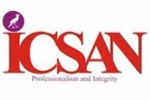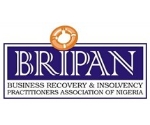Repatriation Of Funds From Nigeria By Foreign Investors: The Key Steps Involved
Nigeria is a leading investment destination in Africa. One of the key incentives for doing business in Nigeria is that investors can repatriate 100% of their capital and profit subject to applicable taxes.
Recently, the Central Bank of Nigeria (Nigeria’s apex bank) reported in the “Economic Report, First Quarter 2023” that foreign firms repatriated a total $5.86bn from Nigeria between October 2022 and March 2023 out of which $5.13bn was repatriated as dividends by foreign investors.
Nigeria’s investment policy promotes free entry and exit of foreign investment. This is backed by the 1999 Constitution of Nigeria (as amended), Nigerian Investment Promotion Commission (NIPC) Act, Chapter N117, LFN 2004 and the Foreign Exchange (Monitoring and Miscellaneous Provisions) Act, CAP F34, LFN 2004.
For a business to be able to successfully repatriate 100% of its capital and profit in any currency, such capital must have been brought into the country by means of a “Certificate of Capital Importation”.
In addition to repatriation by means of a Certificate of Capital Importation, foreign capital could equally be repatriated using a Technology Transfer Agreement.
We shall now examine in this article, the repatriation of capital through a Certificate of Capital Importation and the use of Technology Transfer Agreement.
What is a Certificate of Capital Importation (“CCI”)?
A CCI is a document issued by an authorized dealer on behalf of the Central Bank of Nigeria to a foreign investor as proof that the investor has brought in capital into the country.
This capital could be in the form of debts, equity, goods, or cash. The cash could be applied as a loan, or used for the purchase of equipment, machines, or raw materials. The authorized dealer is any commercial bank in full operation in Nigeria.
Section 15 of the Foreign Exchange (Monitoring and Miscellaneous Provisions) Act provides that any person can invest foreign currency or capital imported in Nigeria through an authorized dealer by way of telegraphic transfer, cheques or other negotiable instruments.
The authorized dealer being a commercial bank in operation in Nigeria is then mandated to issue a certificate of capital importation within 24hours of the importation as well as file returns with the Central Bank of Nigeria within 48 hours accordingly.
This process of issuance of this certificate is now automated unlike what was obtainable before. The certificate issued upon completion of the process is an electronic certificate.
How is a CCI Obtained?
The nature and requirement for obtaining a CCI varies depending on the type of investment. We have already explained that a foreign capital investment could be in the form of debts, equity, goods, or cash. But generally, this process would require the following:
- An application by the foreign investor or beneficiary of the investment requesting for the issuance of a CCI to the authorized dealer.
- A resolution by the board of directors of the beneficiary (in Nigeria) authorizing and accepting the investment.
- A copy of the certificate of incorporation of the beneficiary in Nigeria.
- The beneficiary in Nigeria would be required to provide the name and address of the foreign investor.
- A telex copy of the investment showing the amount and purpose of the investment.
- The nature of the business of the investor
- The industry where the beneficiary in Nigeria operates.
Upon submission of the application and provision of the required documentations, the CCI would be issued by the authorized dealer, which is usually a commercial bank on behalf of the Central Bank of Nigeria within 24hours as required by the law. The certificate is issued free of charge to the investor.
Repatriation of funds through the use of Technology Transfer Agreement:
The repatriation of capital from Nigeria could equally be carried out through the use of a Technology Transfer Agreement. A technology Transfer Agreement as the name may suggest is an agreement which promotes the transfer of technology to a Nigerian business or entity.
This may take the form of Software License Agreement, Trademark License Agreement, Technical Services Agreement and Franchise Agreement.
The National Office for Technology Acquisition and Promotion Act (NOTAP Act) Cap N62, LFN, 2004 requires that every agreement which involves the transfer of technology must be registered with the National Office for Technology Acquisition and Promotion (NOTAP).
A foreign investor is equally required to seek the prior consent of NOTAP before entering into any agreement which involves the transfer of technology to Nigeria.
Both the registration and consent obtained from NOTAP would enable the foreign investor to repatriate the capital, profit and any other payment due under the Technology Transfer Agreement to a foreign destination.
Some of the factors which are considered by NOTAP before the registration of a Technology Transfer Agreement are that:
- The agreement must be such that promotes the technological interests and integrity of Nigeria.
- There must be provision for capacity building of Nigerians in the Agreement.
- The foreign investor or company must pay applicable taxes locally.
- The Agreement must provide means for the local domestication of the technology alongside skills acquisition by Nigerians.
- There must be evidence of the registration or process of registration of the intellectual property in Nigeria.
Conclusion
Nigeria’s economy permits 100% repatriation of capital and profit by foreign investors. This process of repatriation of funds could either be done using the Certificate of Capital Importation of registration of Technology Transfer Agreement.
Whatever method is to be adopted by the foreign investor must comply with local legislations.
Berkeley Legal is a leading business law firm in Nigeria. We provide comprehensive and sophisticated range of specialized and personalized legal services that are designed to meet the various needs of highly diversified local and international businesses.
If you would like to know more about Repatriation of Funds from Nigeria by Foreign Investors, please contact info@berkeleylp.com
The information provided in this article is for general informational purposes only and does not constitute legal advice.







